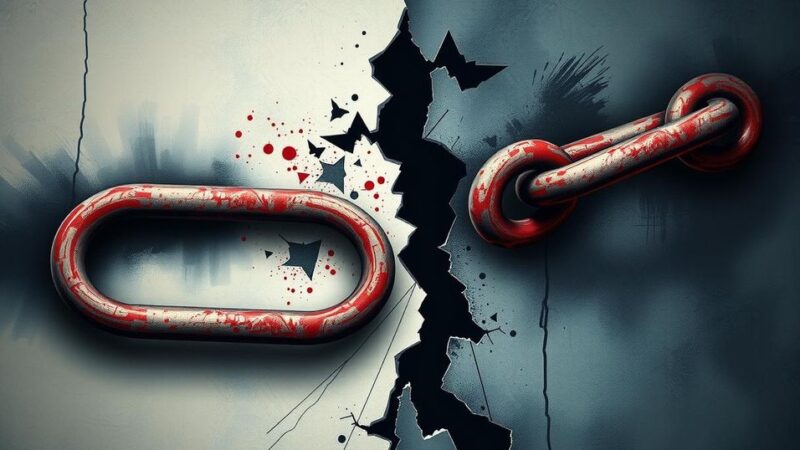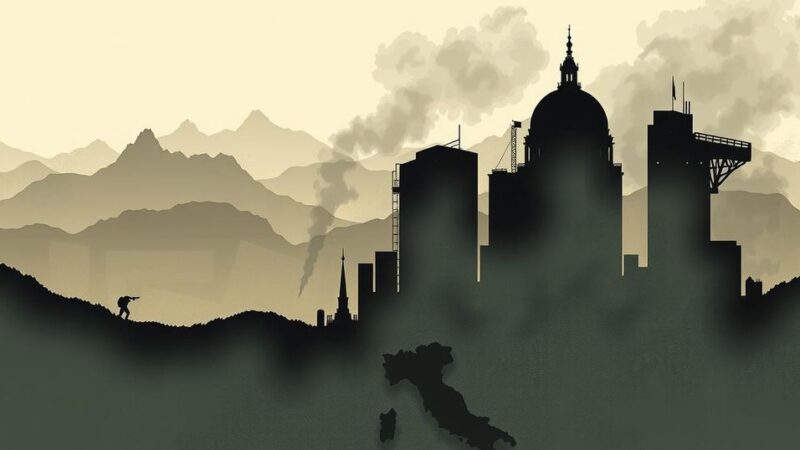The Democratic Republic of Congo faces increased violence driven by Rwandan-backed M23 rebels, who captured Goma and advanced towards Bukavu. The conflict has historical roots and has resulted in widespread displacement and casualties. The involvement of foreign troops raises concerns about regional escalation, while humanitarian efforts struggle under funding pressures. Diplomatic negotiations remain stalled as the government refuses talks with the rebel group, which it labels as terrorists.
The surge of violence in the Democratic Republic of Congo (DRC) is largely attributed to Rwandan-backed M23 rebels, who captured Goma, the region’s largest city, in late January. Following this, they have advanced toward Bukavu, the second-largest city. The current conflict highlights a historical struggle over power, identity, and resources, tracing back to the 1990s and the fall of dictator Mobutu Sese Seko. Since 2012, hundreds of thousands have been killed, and over a million people have been displaced due to ongoing violence.
After seizing Goma, M23 rebels continued southward to Bukavu, where they recently took control of the strategic Kavumu airport. They are positioning themselves as potential stewards of order in Goma, yet reports of chaos, looting, and sexual violence near the frontlines persist. The United Nations refugee agency has raised alarms about the rapidly deteriorating situation, stating that around 350,000 displaced individuals are without shelter.
The presence of Burundian and Rwandan military forces in the region raises concerns that the conflict may escalate into a broader regional war, similar to the devastating wars between 1996 and 2003. Recent reports indicate that South Africa has bolstered its military presence in the DRC, following the deaths of 14 soldiers in clashes with M23.
M23 is named after a March 23, 2009 peace agreement that ended a previous Tutsi-led rebellion. This current uprising began in 2022, as the group accuses the Congolese government of failing to uphold the peace accord and integrate Congolese Tutsis into governmental institutions. M23 seeks to defend Tutsi interests against ethnic Hutu militias such as the Democratic Forces for the Liberation of Rwanda (FDLR), which has ties to the 1994 Rwandan genocide.
Controlling the coltan-rich region of Rubaya, M23 generates considerable revenue—reportedly $800,000 monthly—through production taxes. The group’s territorial expansion in recent weeks suggests potential for further financial gain from Congo’s wealth of mineral resources, including tantalum, cobalt, and copper. Paradoxically, despite acting as the world’s leading mineral producer, the DRC remains heavily reliant on foreign aid, with 70% of humanitarian efforts funded by the United States.
The Congolese government, along with Western powers, has accused Rwanda of supporting M23 by deploying troops and heavy weaponry in Congo. This assertion stems from a 2022 United Nations report that provided solid evidence of Rwandan military involvement alongside M23. In response, Rwanda’s government contends it is only taking defensive measures and accuses Congo of collaborating with FDLR militia, which has targeted Tutsis in both nations.
African leaders are currently exploring avenues for negotiation to resolve the conflict but have encountered significant challenges. A recent summit of Eastern and Southern African blocs encouraged all parties, including M23, to engage in direct negotiations, yet the Congolese government remains unwilling to engage with what it labels a terrorist organization. President Felix Tshisekedi emphasized this stance at the Munich Security Conference.
U.N. peacekeepers, part of the United Nations Organization Stabilization Mission in the DRC (MONUSCO), are assisting Congolese efforts to subdue M23. Although there were plans for a gradual withdrawal, those plans were halted due to worsening security conditions. Nearly 11,000 peacekeepers are stationed primarily in the eastern regions, and recently the mission has had to evacuate personnel and assist individuals fleeing violence, including government officials and militia members who have surrendered.
The Southern African Development Community (SADC) has extended its military mission to bolster the Congolese army’s efforts against M23. However, the rising tensions have resulted in troop casualties for SADC forces, and Burundian troops remain active in the conflict against M23. Private military contractors engaged by the Congolese government to combat the insurgency have also faced challenges, surrendering amidst the turbulent situation.
The ongoing violence in the Democratic Republic of Congo stems from a complex interplay of historical grievances, ethnic tensions, and economic interests exacerbated by external interventions. The rise of the M23 rebels, backed by Rwanda and supported by Burundian forces, has led to significant humanitarian crises, with hundreds of thousands killed and displaced. Despite numerous calls for negotiation, the Congolese government remains steadfast in its refusal to engage with M23, labeling it a terrorist organization. The international community continues to watch the situation closely, fearing a recurrence of devastating regional conflicts.
Original Source: globalnews.ca






